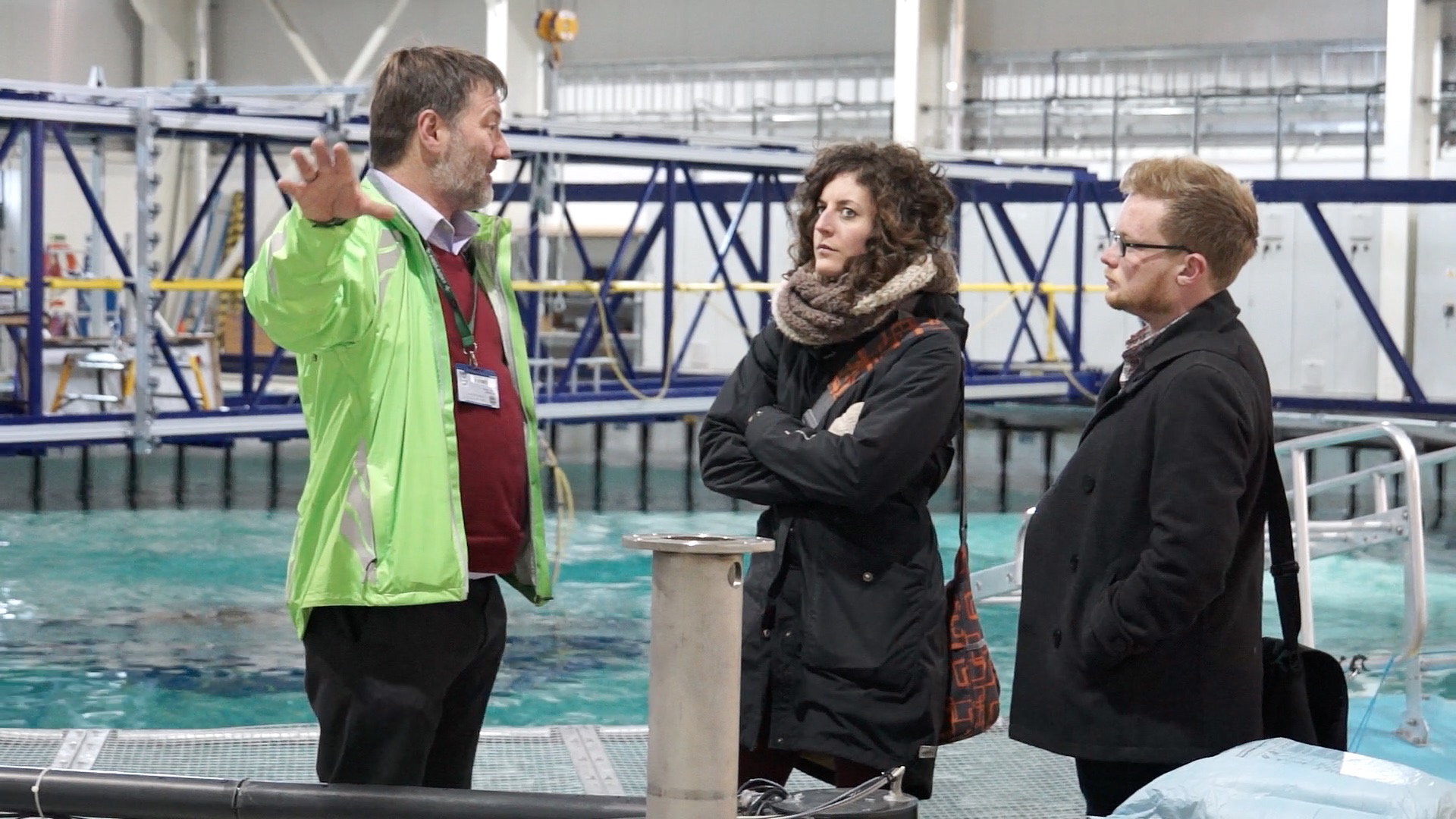Work based placement: Aida De Heras Olivares and James Tooze

Aida and James joined us from the MSc Science Communication and Public Engagement course, and were tasked with collating research at the University specifically to do with climate change.
We set off that morning unsure about what the next eight Thursdays of our lives would look like. After a much needed caffeine kick and some speculation on the tasks we would be assigned on our new placement, we made our way down the cobblestones of Buccleuch Street on what was very likely to be your typical windy, rainy Edinburgh day. With numb, freezing cold fingers, we clumsily fiddled with our phones in an attempt to get googlemaps to give us an answer on where to find 9 Hope Park Square, where Matthew Lawson would be expecting us at 10am for a meeting. Barely a couple of minutes before then, we managed to arrive at our destination. We were finally at the Department for Social Responsibility and Sustainability, the only place in the University whose office makes you feel like you’re off for a trip to grandma’s. Well, from the outside at least.
Located down a narrow street, made even narrower by the shroud of construction work (surprise, surprise!), the SRS department is one a kind. Aside from the confusion experienced when walking into the office for the first time – have I accidentally invaded somebody’s home? – the SRS is the only department of this nature in the UK, made even more unique by its young and enthusiastic team. When not talking about joining a marathon or turning veggie for a month, you’ll find them promoting sustainable travel, facilitating the reuse and exchange of University equipment, and everything in between.
As Science Communication Masters students, we are given the opportunity to undertake a placement to experience what science communication feels like in ‘real-life’. The decision to choose this department was an easy one, after SRS was rhapsodized over by our classmates who had helped with a project here before Christmas. From the outset it was clear we were going to be well looked after, our project had been thought out but with enough room to put our own touches into our work. Our challenge, as part of the Edinburgh Action for Climate campaign, was to compile ALL of the research being carried out within the University of Edinburgh relating to tackling climate change.
How did we do this? Reading websites. Loads. Of. Websites.
Two full days and several headaches later, we came up with a long list of climate change related projects taking place at pretty much every school within the University. Our next task was to narrow this list down to pieces of research we found suitable to summarize in a case study. Armed with a bunch of researchers’ email addresses and phone numbers, we set out to chase said academics, determined to schedule a meeting with them. The real question though, was did any of these researchers actually want to speak to us?
We were about to find out.
(Pause for effect)

Visiting the FloWave Ocean Research Facility
A word of advice for budding interviewers, if you get the chance to interview an academic who is passionate about their research, make sure you schedule the rest of the day off to let them speak. In all seriousness, it was difficult to controvert their passion after hearing all about their subjects. And why should it be? One of the researchers we interviewed makes use of a giant water tank that can simulate deep ocean waves (called FloWave) which is a real sight to behold. From macro to micro, the other academic we interviewed works amongst home-made 3D printers, laser cutters and all manner of fascinating materials including kevlar.
Our resulting case studies can be found on the Action for the Climate webpage.
We have both studied at university for almost five years, partly for the education but partly for the experience (you know, the long summer breaks and even longer nights before deadlines). However, after our brief taste of ‘a real job’ at the SRS, our perception of the professional world has taken a different shape. Leaving behind a lifestyle of procrastination, Wednesday morning lie-ins and ready meals can’t be that bad if you work in a place like the Department for Social Responsibility and Sustainability, where everybody is actively trying to make a difference.





Recent comments